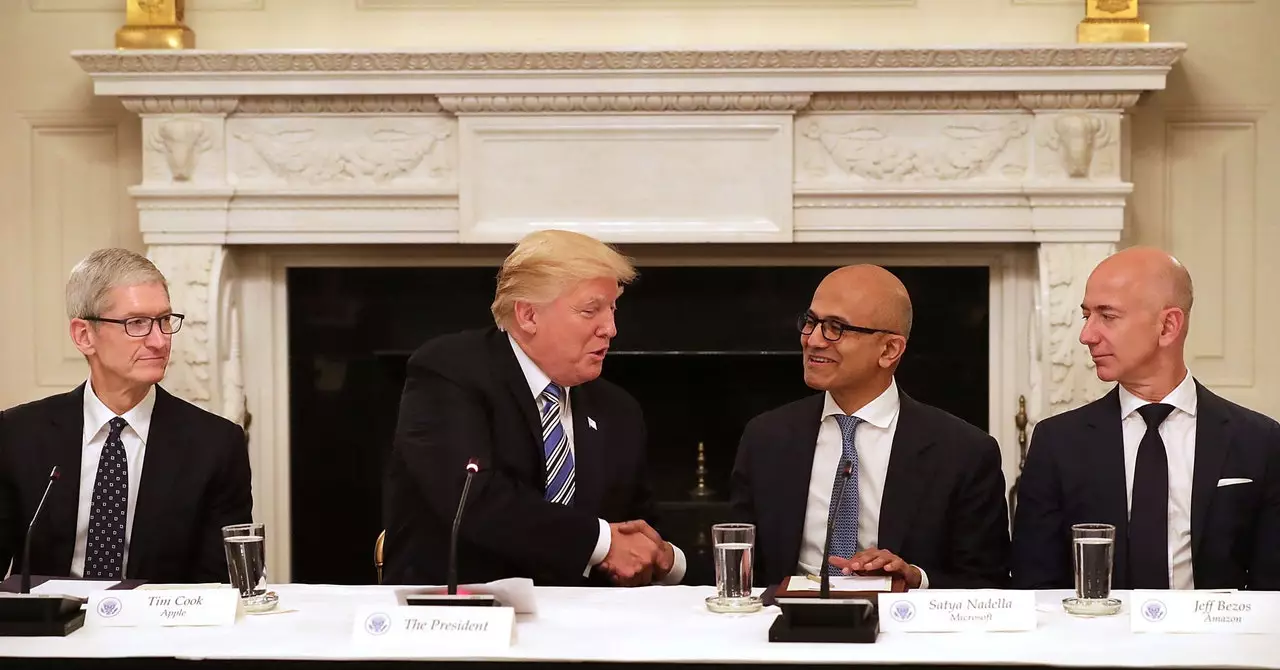As the political landscape evolves, the intersection of technological innovation and regulatory oversight becomes a battleground for differing ideologies. The recent political rally where former President Donald Trump drew raucous applause by vowing to dismiss Gary Gensler, the chair of the Securities and Exchange Commission (SEC), underscores this pivotal shift. Gensler’s aggressive regulatory approach has been a point of contention, particularly for cryptocurrency enthusiasts who believe his actions, which include multiple lawsuits against cryptocurrency companies during the Biden presidency, threaten to stifle innovation in the burgeoning blockchain space.
Trump’s commitment to reshaping regulatory bodies signals more than just a potential change in leadership; it embodies a broader pro-business agenda that may revitalize the tech industry, especially crypto. The applause elicited from his mention of Gensler’s potential dismissal highlights a growing frustration among advocates for deregulation and a desire for a more lenient regulatory framework that encourages rather than curtails technological advances.
In a further indication of a distinct shift in the Trump administration’s approach towards technology and its discontents, the former president also pledged to commute the life sentence of Ross Ulbricht, the notorious creator of Silk Road. This online marketplace, infamous for facilitating the trade of illegal substances, was among the earliest platforms to adopt Bitcoin, thus igniting an ongoing conversation about digital currency use in illicit activities. Advocates for Ulbricht’s release contend that his punishment is disproportionately harsh, illustrating a persistent tension within the discourse surrounding internet commerce and criminality.
The decision to support Ulbricht’s commutation intertwines with Trump’s broader narrative of combating overreach by government agencies. Critics of the current administration assert that excessive penalties for nonviolent offenses, especially in the tech domain, raise ethical concerns. Trump’s willingness to intervene in Ulbricht’s case could be viewed as a stepping stone toward reevaluating how legislation interacts with evolving digital landscapes.
As Trump sets his sights on reclaiming leadership, a pivotal question arises regarding the future of Lina Khan, the incumbent chair of the Federal Trade Commission (FTC). Appointed at only 35, Khan quickly gained notoriety for her rigorous stance against big tech, taking on titans such as Google, Meta, and Amazon. This has placed her at the epicenter of heated debates relating to antitrust regulations and corporate accountability. Opinion among influential figures is sharply divided; LinkedIn co-founder Reid Hoffman has harshly criticized Khan, whereas others, like Trump-endorsed Elon Musk, claim her leadership is detrimental.
Analysts point out that Khan’s authority has coupled with broader sentiments in the tech sector, whose leaders view her as a formidable obstacle. The environment Khan cultivated during her tenure has prompted calls for reform, especially regarding censorship allegations against major platforms like Facebook and Google. Critics argue that the concentrated power of these companies can manipulate public discourse and infringe on free speech, suggesting the need for structural remedies through antitrust enforcement.
Future Directions: Trump’s Potential Technological Agenda
Both Trump’s actions and rhetoric imply a future administration committed to rethinking the relationship between technology and regulation. While it remains uncertain whether the former president would retain Khan or another figure committed to stringent oversight, it is clear that the fight over antitrust regulation will continue to be a hotly contested issue. Trump’s vague pointers towards a more equitable approach to corporate giants like Google suggests a strategic maneuvering to redefine tech monopolies in a manner that aligns with his political ambitions.
Leadership changes and regulatory shifts could herald an era of greater collaboration—or confrontation— between the tech industry and government oversight. It is plausible that any new administration could utilize existing antitrust suits as bargaining chips to ensure favorable policies related to content moderation and free speech.
As we traverse these uncharted waters of regulation and innovation, the choices made by the upcoming leadership will have profound implications for the future of technology, its governance, and the balance between fostering innovation and protecting consumer rights. With the stakes higher than ever, both advocates and opponents of reform must brace for a transformative chapter in American regulatory policy.

